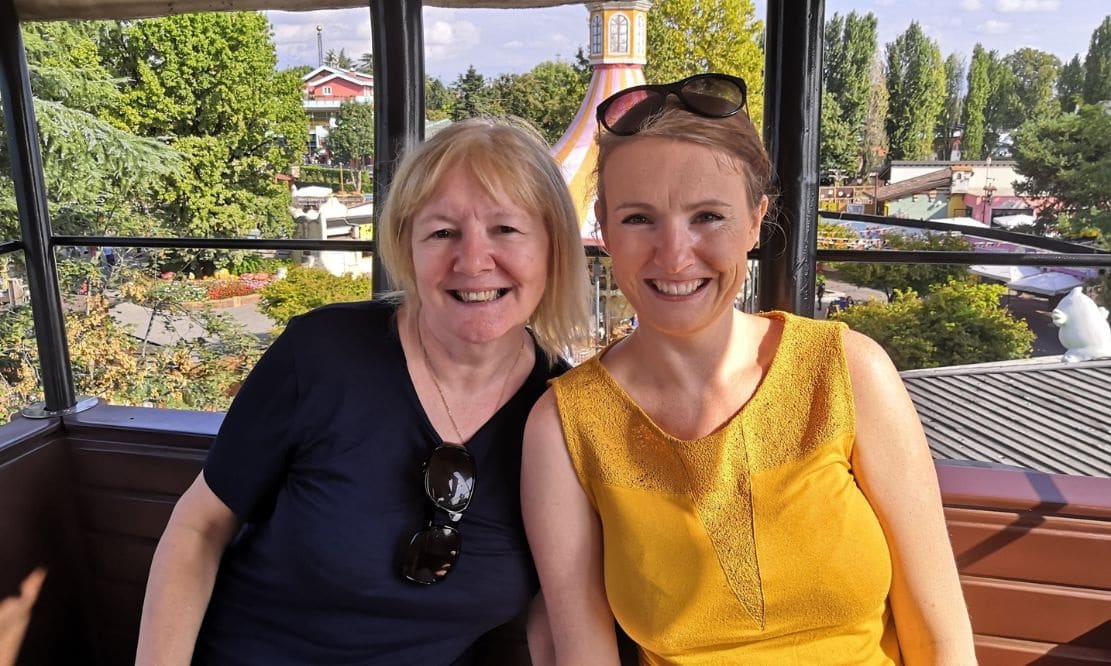
A Newry woman has said ‘urgency is important’ for those with symptoms of less survivable cancers after ‘missed opportunities’ in the period before her mum’s death.
Anna Beretta, 37, lost her mother, Virginia, to pancreatic cancer in June 2021. Virginia died just six months after first experiencing symptoms.
She was speaking to the charity Pancreatic Cancer UK on what is Less Survivable Cancers Awareness Day (January 11), as new figures released by the Less Survivable Cancers Taskforce (LSCT) show the UK is falling behind other countries in survival rates.
According to the organisation, Northern Ireland and the whole of the UK “lag woefully behind” other countries for cancer survival.
The findings released today are based on a new analysis of existing data and the world survival rankings of cancers of the lung, liver, brain, oesophagus, pancreas and stomach.
Northern Ireland, and the UK, ranks below most other countries for these six cancers.
Out of 33 countries with comparable wealth levels, Northern Ireland specifically ranks as low as 29th for five-year survival rate for pancreatic cancer and 30th for lung cancer. It also ranks 26th for liver cancer, 21st for brain cancer, 24th for stomach cancer and 8th for oesophageal cancer.
The overall poor survivability for less survivable cancers is similar across all UK nations.
The reasons behind the UK’s lethal gap in survival are complex and experts believe they are likely to be a mix of delayed diagnosis and slow access to treatment.
Many patients with a less survivable cancer will only be diagnosed after an emergency admission to hospital or an urgent GP referral after symptoms have become severe.
Anna said: “Urgency is important for pancreatic cancer, and other less survivable cancers. Mum’s GP missed an opportunity to fully investigate her symptoms, and even after she was admitted to A&E we had to wait four more weeks to have the diagnosis officially confirmed.
“Everything was painfully slow. I know that resources are stretched, but there should never be more than a four-week wait like there was with my mum.
“Time is of the essence for people with less survivable cancers. Diagnosis must be made earlier to save lives, and education is needed so that healthcare professionals know what symptoms to look out for.”
Currently in the UK, seven-in-ten patients receive no treatment at all for pancreatic cancer and of the 10,000 people diagnosed annually, just 10% receive surgery, the only potentially curative treatment.
These poor outcomes are often the result of patients waiting too long for a confirmed diagnosis and for treatment to begin.
The less survivable cancers make up nearly half of all common cancer deaths in the UK and over 90,000 people are diagnosed with one of the less survivable cancers in the UK every year.
Despite their prevalence, the less survivable cancers receive a fraction (16.6%) of research funding of more survivable cancers.
Anna Jewell, Chair of the Less Survivable Cancers Taskforce, said: “People diagnosed with a less survivable cancer are already fighting against the odds for survival. The figures we’re sharing today show that people living in the UK have even worse prospects than those living in comparable countries.
“We can see from these statistics that if we could bring the survivability of these cancers on level with the best-performing countries in the world then we could give valuable years to thousands of patients.
“If we’re going to see positive and meaningful change then all of the UK governments must commit to proactively investing in research and putting processes in place so we can speed up diagnosis and improve treatment options.”



